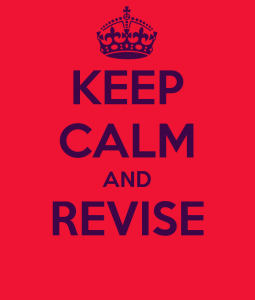Pinned this week week for your storytelling pleasure:
Highly recommended: In schools, the complexity in assigned reading is dropping, NPR reports: “A century ago, students were being assigned books with the complexity of around the ninth- or 10th-grade level. But in 2012, the average was around the sixth-grade level.” Pair with yesterday’s engaging Dan Zak piece in the Washington Post, on the news illiteracy and apathy of prospective jurors in the George Zimmerman/Trayvon Martin case:
The efficiency of the American jury system, Mark Twain once wrote, “is only marred by the difficulty of finding 12 men every day who don’t know anything and can’t read.”
Yet it is the most democratic demonstration we have, says Randolph Jonakait, a professor at New York Law School and author of “The American Jury System.”
“That we take ordinary people off the street and ask them to decide the fate of other human beings — that’s truly remarkable,” Jonakait says. “And it says something about our belief or our faith or our willingness to use ordinary common sense in making the most important decisions people are ever going to make.”
R39, a landscaper, wrote this on his juror questionnaire: “I don’t really care about what happened.”
When pressed in court about this sentiment on Wednesday, R39 says: “I’m not a person who cares that much about other people.”
When court went into recess late Wednesday afternoon, 75 jurors had been dismissed and 20 remained in the potential pool. Once the pool reaches 40, these potential jurors will be subjected to a round of more detailed questioning that will drill down into personal matters and opinions unrelated to pretrial publicity. The judge announced Thursday that the jury would be sequestered for the duration of trial, which is expected to start next week, at the earliest, and last two to four weeks.
Through Thursday, 34 potential jurors had been questioned individually, sitting in the same cushioned chair, in front of the same congregation of media, answering the same convoluted questions from prosecutors and defense attorneys.
De la Rionda is asking B86 on Tuesday if she could disregard hearing that Trayvon had been suspended at school.
“I could try,” says B86, auburn hair tucked behind her ears.
Does “try” mean you can?
“Probably.”
“ ‘Probably’ means you’re not sure? Does it mean ‘maybe’?”
“I’m not sure. . . . I can’t guarantee anything.”
“We are inspired by the honesty of the potential jurors,” Trayvon’s family said in a statement Wednesday.
 Gear: “Keep Calm and Revise” — just put it on your wall already. You’ll feel better. Bonus: a “bloody-writer” crime scene notepad, for the days when that doesn’t work.
Gear: “Keep Calm and Revise” — just put it on your wall already. You’ll feel better. Bonus: a “bloody-writer” crime scene notepad, for the days when that doesn’t work.
Inspired: “I learned how to read from comic books, but also how to see.” + 40 Towns, the literary journalism website and work of Jeff Sharlet’s students at Dartmouth + TED Radio Hour exploration of storytelling, with novelist Chimamanda Adichie, filmmaker Andrew Stanton + Creatavist, The Atavist’s new DIY multimedia storytelling tool, which WBUR is using to manage Whitey Bulger trial coverage.
Cartoontorials: on finding your own voice (but loving Michael Paterniti’s!); on the professionalism of sticking to your assigned word count; on the definition of narrative journalism (in case you forgot).
Tip sheets: Writing advice from famous authors (Orwell: “Never use a long word where a short one will do”) + Edmund Wilson’s checklist on how to say NO.
Walter Lippmann: a board devoted to the two-time-Pulitzer-winning columnist, author, founding editor of The New Republic, and namesake of our Nieman Foundation headquarters, Lippmann House. A deep thinker on the interplay between public opinion and the news, he argued that the masses make up their mind before studying facts, and that most people operate in willful ignorance, without bothering to think critically. He made those arguments in 1922. (Sound timely? See: Zak; Zimmerman; news, above.)


